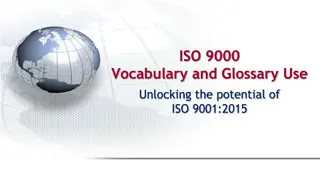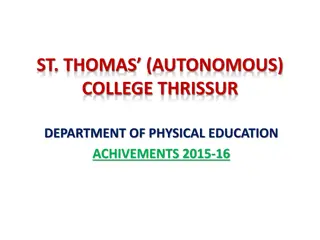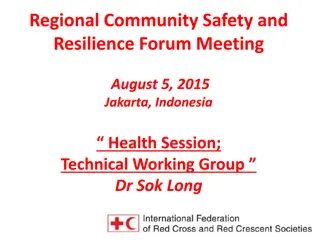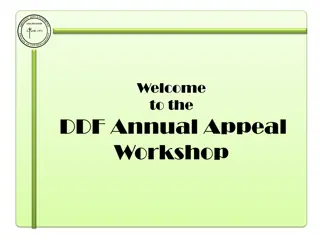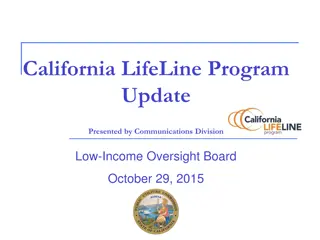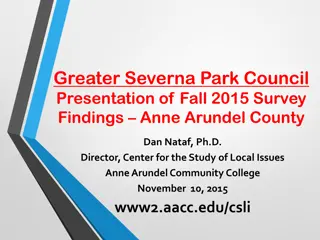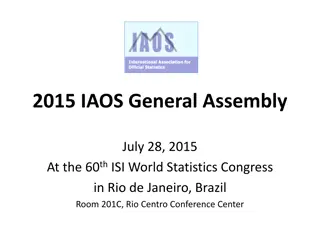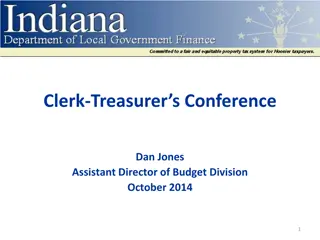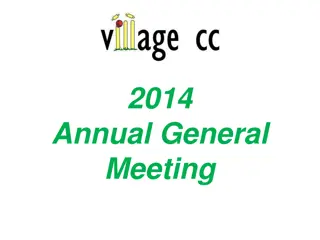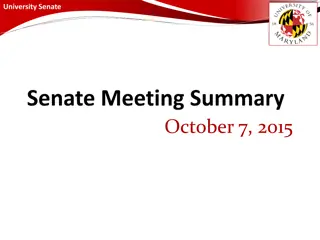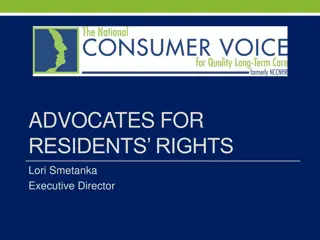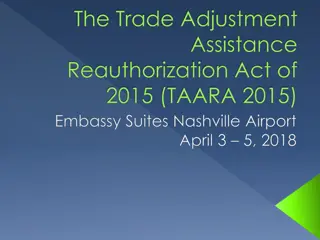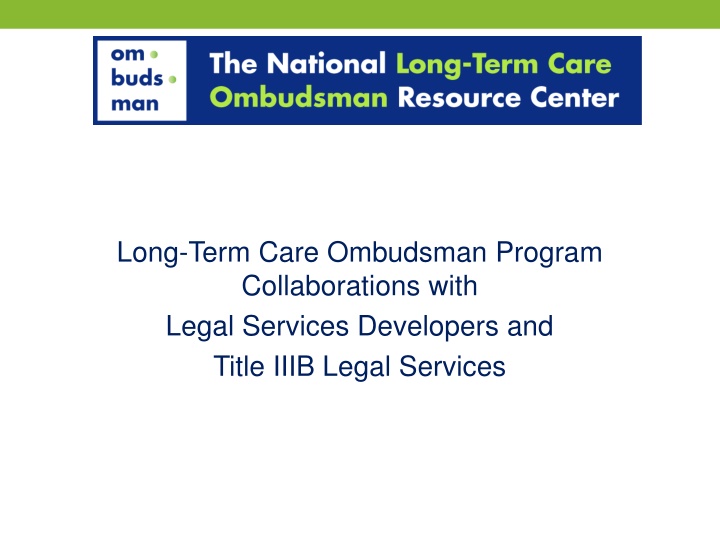
Long-Term Care Ombudsman Program Collaborations with Legal Services
Discover how the Long-Term Care Ombudsman Program collaborates with legal services developers and Title IIIB legal services, empowering residents and advocating for improvements in the long-term care system. Explore the extensive activities, state and local coordination efforts, and project collaborations enhancing the well-being and rights of residents.
Download Presentation

Please find below an Image/Link to download the presentation.
The content on the website is provided AS IS for your information and personal use only. It may not be sold, licensed, or shared on other websites without obtaining consent from the author. If you encounter any issues during the download, it is possible that the publisher has removed the file from their server.
You are allowed to download the files provided on this website for personal or commercial use, subject to the condition that they are used lawfully. All files are the property of their respective owners.
The content on the website is provided AS IS for your information and personal use only. It may not be sold, licensed, or shared on other websites without obtaining consent from the author.
E N D
Presentation Transcript
Long-Term Care Ombudsman Program Collaborations with Legal Services Developers and Title IIIB Legal Services
LTC Ombudsman Program Empowers residents Addresses complaints Advocates for improvements in the long-term care system
53 State Ombudsman Programs State Units on Aging & Disability Other State Agencies Legal Services Programs Other nonprofit organizations 575 Local Ombudsman Entities Area Agencies on Aging Legal Services Programs Other nonprofit organizations 1200+ Local Program Staff 8200+ Certified Volunteers
2013 Ombudsman Activities 190,000+ complaints 24,000 resident and family council meetings 5400 trainings for facility staff 129,000 consultations to facilities 335,000 consultations to individuals plus Individual and community education Public comments on laws and regulations Legislative testimony Working groups, committees
State and Local Coordination with others responsible for the health, safety, well-being or rights of residents: AAA Programs Aging & Disability Resource Centers Adult Protective Services Protection & Advocacy Programs Licensing & Certification Medicaid Fraud Control Units Law Enforcement Courts Victims Assistance Programs Legal Services Developers Legal Assistance Programs
Project Collaborations Between LTCOPs and Legal Services Developers, Legal Services Programs Questionnaires Phone interviews Email outreach
w/ Legal Services Developers Collaborative Efforts Joint trainings Policy collaboration Technical Assistance Joint workgroups or task forces Education of state and federal policy makers Monitoring laws and regulations
Barriers to Collaboration Lack of a dedicated Developer Lack of state emphasis on legal services for seniors Inadequate or no funding for Developer work Developer not an attorney Lack of knowledge or understanding about each other s roles and responsibilities Age requirements for legal assistance under the OAA
Examples of Collaboration LSD is the primary provider of technical assistance and information to the SLTCOP on issues such as guardianship and elder abuse Development of consumer information on elder abuse and exploitation Legislative advocacy i.e., increasing the personal needs allowance, establishing an Office of Public Guardian; Review of program policies and procedures; Developed a plan of action for dealing with residents moving out of facilities into the community
w/ Title III-B Legal Services Providers Collaborative Efforts Case referral* Provision of legal services to LTCOPs through contract Comments on proposed regulations Development of consumer information Legal advice, counsel, opinions to LTCOPs Technical assistance between the programs Training Policy analysis Issues for case referral include: Involuntary discharge; guardianship; other surrogate decision-making issues; Medicaid and other program eligibility issues; access to medically necessary services or supports; subpoenas;
Barriers/Challenges to Collaboration Confidentiality restrictions Limited resources Program priorities do not align Time constraints Lack of MOUs cause challenges in coordination Lack of LTCO access to a III-B service provider contracting with their agency
Recommendations Create opportunities for cross-training at the state and national levels through conference, webinars, conference calls to increase exposure and recognition of programs Develop MOU to detail roles and responsibilities of entities when working on cases, sharing of information, establishing referral processes, exploring avenues for cross-training Promote regular meetings to discuss cases and issues, and how they can more effectively collaborate Seek out opportunities to work together on systemic issues through joint participation on legislative coalitions, training conferences, Olmstead Councils Coordinate legislative agendas or priorities to identify common areas of interest or concern
Lori Smetanka lsmetanka@theconsumervoice.org 202-332-2275, x206 The National Long-Term Care Ombudsman Resource Center (NORC) www.ltcombudsman.org

